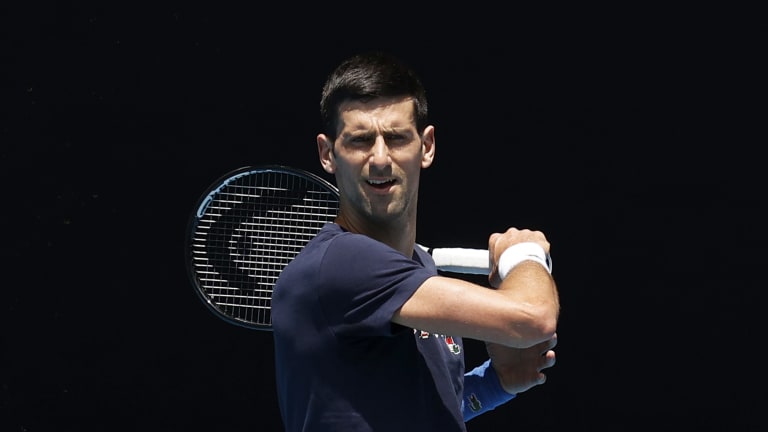Australian Open
From Quixotic to Kafkaesque: Where we stand one week into the standoff between Novak Djokovic and the Australian government
By Jan 14, 2022Australian Open
"Trust and accelerate" is Coco Gauff’s mantra of the moment
By Jan 23, 2026Australian Open
Leylah Fernandez "finally" gets the AO party experience in winning debut with Nick Kyrgios
By Jan 23, 2026Australian Open
One year later in Melbourne, Learner Tien will face Daniil Medvedev again — this time as a contender
By Jan 23, 2026Australian Open
Novak Djokovic advice inspired Iva Jovic to first Top 10 win, Australian Open fourth round
By Jan 23, 2026Australian Open
Tommy Paul seeks to meet “the standard” set by Carlos Alcaraz in Australian Open rematch
By Jan 23, 2026Australian Open
Songs about rabbits help Yulia Putintseva dance through tense Australian Open third round
By Jan 23, 2026Australian Open
At 28, free spirit Alexander Bublik has learned that victory is worth fighting for
By Jan 22, 2026Australian Open
"I can barely imagine playing in four years": Taylor Fritz excited for AO clash with 40-year-old Stan Wawrinka
By Jan 22, 2026Australian Open
Sorana Cirstea gives Naomi Osaka frosty handshake after Australian Open clash
By Jan 22, 2026From Quixotic to Kafkaesque: Where we stand one week into the standoff between Novak Djokovic and the Australian government
The world No. 1 continues to tilt at medical windmills, even as he has become ensnared in a bewildering bureaucratic cul de sac.
Published Jan 14, 2022
Advertising
Advertising

Foe Knows: How to keep up with your favorite teams around the 🌏
The diehard basketball fan hasn’t let jet lag or a few hours' time difference stop him from keeping up with the NBA Playoffs.
Advertising

From Novak Djokovic to the Grand Slam tournament to the Australian government, a hero has yet to emerge in this tale.
© Getty Images